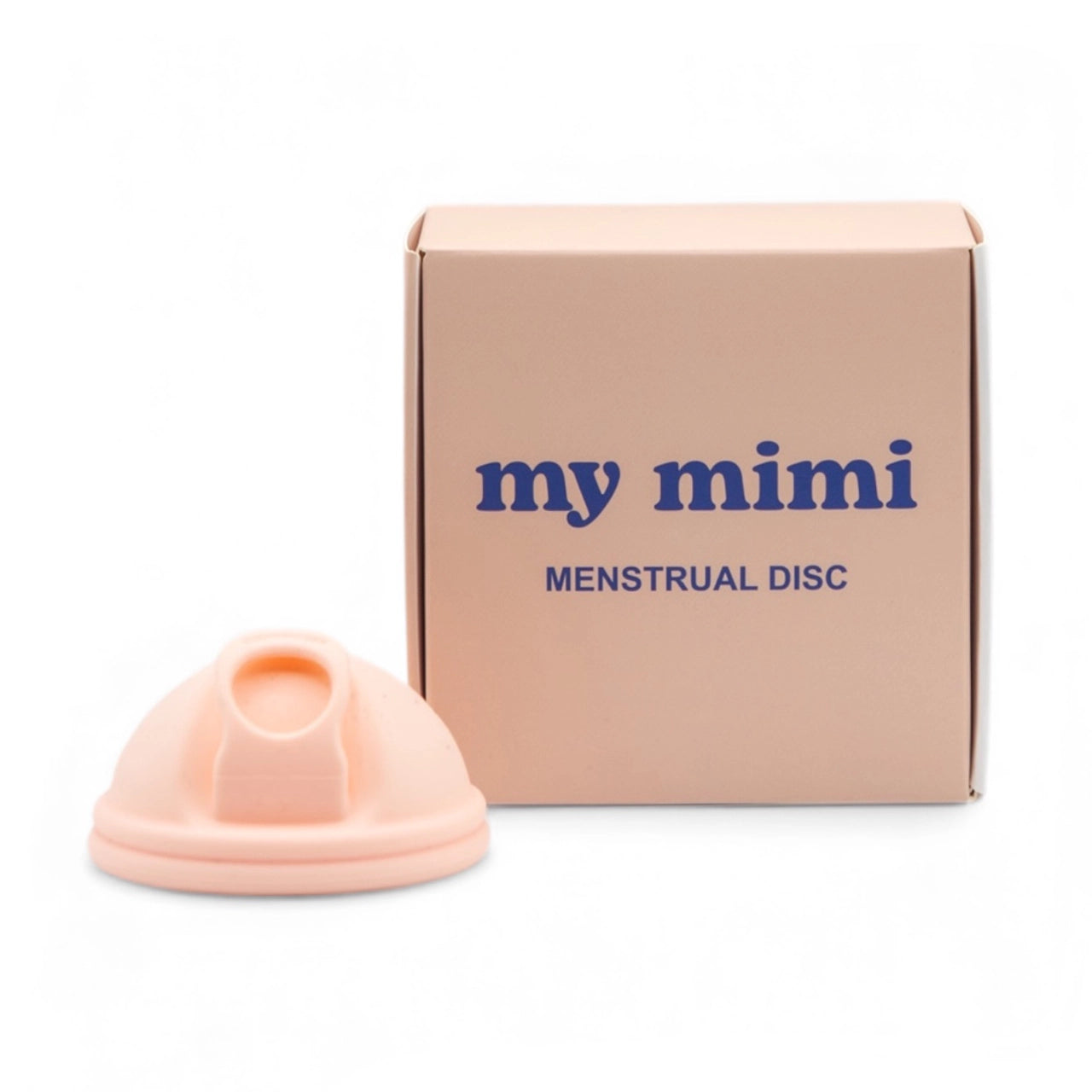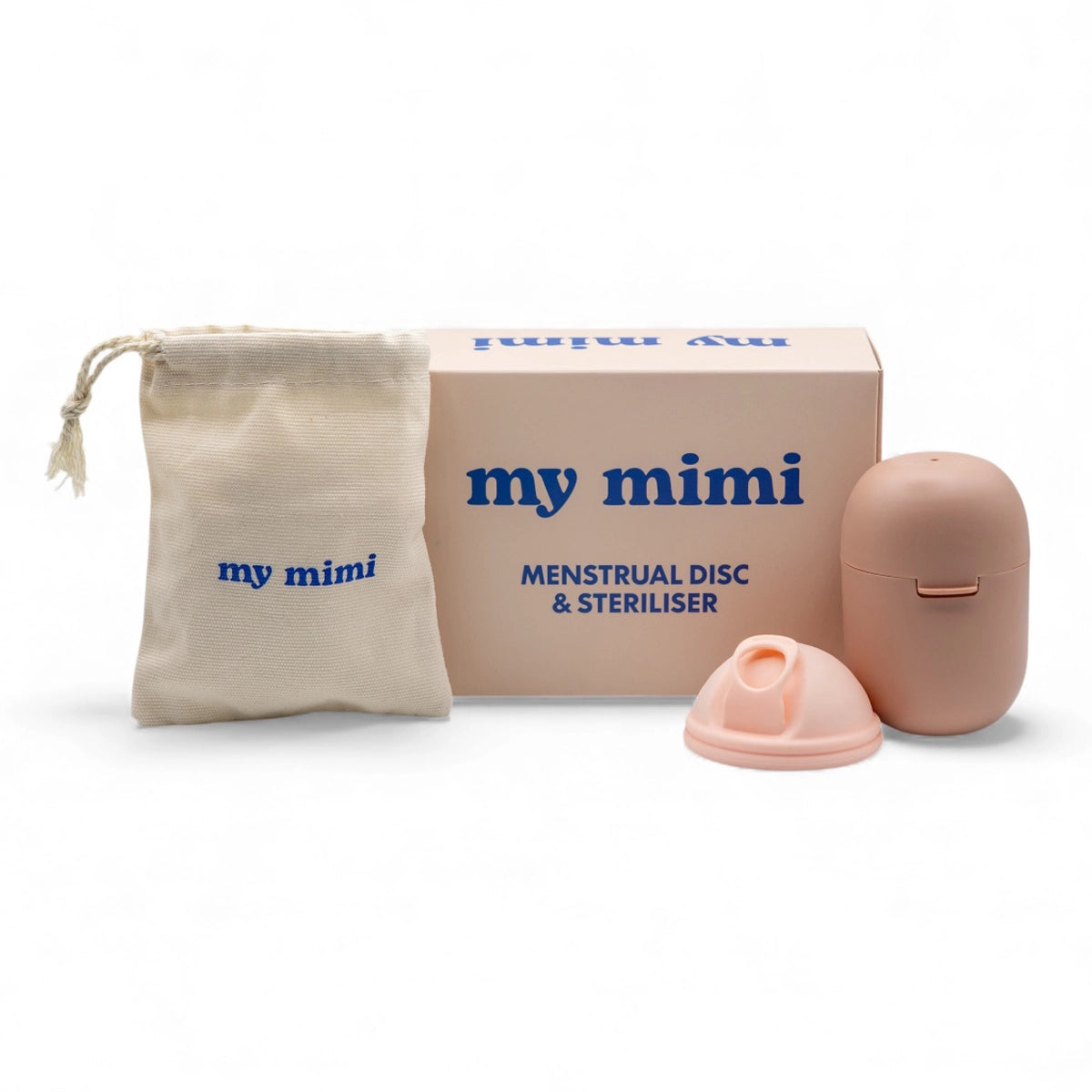understanding menstrual discs and birth control
If you're new to the menstrual disc, you're not alone. This innovative reusable period product offers an eco-friendly and comfortable alternative to tampons and pads by collecting menstrual fluid instead of absorbing it.
Note: A menstrual disc is not a form of birth control. This article will help clarify the role of menstrual discs and explain how they differ from contraceptive methods.

what is a menstrual disc?
A my mimi menstrual disc is a soft, flexible, bowl-shaped device that sits in the vaginal fornix just below the cervix. It collects menstrual fluid and can be worn for up to 12 hours. Menstrual discs, like the my mimi menstrual disc, are reusable and can help reduce waste while providing reliable, leak-proof period protection.
can a menstrual disc be used as birth control?
No. While menstrual discs are designed to manage menstrual flow, they do not function as contraceptives. They do not block sperm, contain hormones, or alter reproductive function. Using a menstrual disc will not prevent pregnancy and does not protect against sexually transmitted infections (STIs).
what is birth control?
Birth control, or contraception, refers to methods that are used to prevent pregnancy. These can include:
- hormonal methods: such as pills, hormonal IUDs, patches, and injections that control ovulation and alter the uterine lining.
- barrier methods: including condoms, diaphragms, and cervical caps that block sperm from reaching the egg. Learn more about how a menstrual disc differs from a diaphragm.
- IUDs: intrauterine devices that offer long-term contraception, available in hormonal and non-hormonal versions.
- permanent methods: like tubal ligation or vasectomy that are considered irreversible.
does a menstrual disc interfere with birth control?
In general, menstrual discs do not interfere with most forms of birth control. However, if you use an internal contraceptive like a hormonal or copper IUD, it's important to insert and remove your disc carefully to avoid dislodging the device. my mimi’s menstrual disc is designed to be IUD-friendly, but always consult your healthcare provider if you have concerns.
how to access the right contraceptive option
Choosing the right birth control depends on your health, lifestyle, and reproductive goals. You can speak with your GP or visit a sexual health clinic to explore available methods. Some options like condoms are available over-the-counter, while others require a prescription or consultation.
key differences between menstrual discs and birth control
- purpose: Menstrual discs manage period flow, while contraceptives are designed to prevent pregnancy.
- hormonal impact: Menstrual discs are hormone-free; some birth control methods contain hormones that affect the menstrual cycle.
- STI protection: Menstrual discs do not protect against STIs, while some contraceptive methods, like condoms, do.
- position and usage: Discs sit high in the vaginal canal to collect menstrual fluid; most contraceptives work by blocking, altering, or suppressing reproductive processes.
can you use both at the same time?
Yes, you can safely use a menstrual disc alongside your chosen birth control method. Many users with IUDs or hormonal contraception use my mimi’s disc without any issues. It’s always best to learn proper insertion techniques and consult with your healthcare provider if you’re unsure.
final thoughts
Menstrual discs are an innovative, sustainable solution for managing periods, but they are not suitable for birth control. Understanding their purpose and knowing how they work alongside contraceptive methods is essential for making informed choices about your reproductive health. For personalised guidance, speak with a medical professional and explore resources that empower you to manage your period with confidence.













